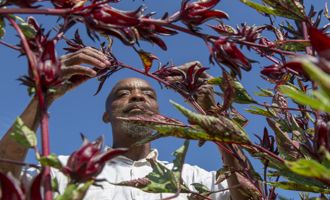To operate our website technically functional and securely, our website uses cookies. If you declare your consent, we may use cookies also to optimize and ongoingly adjust our website to your needs, to offer social media functions and to analyze information on the access to our website. You may revoke your consent anytime. Further information my be obtained through our privacy statement.
Strictly Necessary Cookie should be enabled at all times so that we can save your preferences for cookie settings.
Cookies
Name: moove_gdpr_popup
Description: It saves preferences for cookie settings.
Duration: 1 year
This website uses cookies to collect anonymous information such as the number of visitors to the site, and the most popular pages.
Keeping this cookie enabled helps us to improve our website.
Cookies:
Name: UserMatchHistory
Description: LinkedIn Ads ID syncing
Duration: 30 days
Name: bcookie
Description: Browser Identifier cookie to uniquely identify devices accessing LinkedIn to detect abuse on the platform
Duration: 2 years
Name: lang
Description: Used to remember a user's language setting to ensure LinkedIn.com displays in the language selected by the user in their settings.
Duration: Session
Name: lidc
Description: To facilitate data center selection
Duration: 24 hours
Name: li_gc
Description: Used to store consent of guests regarding the use of cookies for non-essential purposes
Duration: 2 years
Google Analytics
Name: _ga
Description: Used to distinguish users.
Duration: 2 years
Name: _gid
Description: Used to distinguish users.
Duration: 24 hours
Name: _gat_gtag_UA_200342150_2
Description: Used to throttle request rate.
Duration: 1 minute
Name: _gat_gtag_UA_200342150_1
Description: Used to throttle request rate. It comes from career page.
Duration: 1 minute
Name: _ga_VYHFCRQS9E
Description: Used to persist session state.
Duration: 2 years
Name: _ga_SZXYZ0VT0C
Description: Used to persist session state. It comes from career page.
Duration: 2 years
e_tracker
Name: et_coid
Description: cookie recognition
Duration: 2 years or configurable
Name: BT_pdc
Description: It contains Base64-encoded data of visitor’s history (is client, newsletter recipient, visitor ID, shown smart messages) for personalisation.
Duration: 1 year
Name: BT_sdc
Description: It contains Base64-encoded data of visitor’s session (referrer, number of seconds from the beginning of session, shown smart messages in the session), that are used for personalisation purposes.
Duration: Session
Name: et_oi_v2
Description: Opt-In cookie saves the decision of a user, whether on a page tracking Opt-in should conducted.
Duration: 50 years for Opt-Out and 480 days for Opt-In
Other
Name: cookiesAvailable
Description: To check whether 3rd party cookies on websites, that share same domain were already accepted
Duration: Immediately deleted
External content:
YouTube



